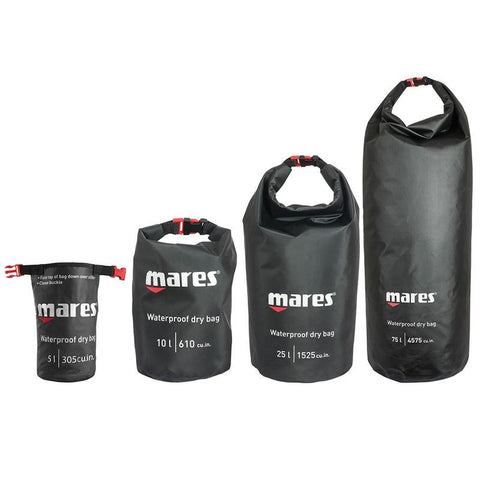Dive bags come in a huge range of varieties from simple mesh bags to all singing and dancing roller bags and that is because a dive bag can mean something completely different from one diver to the next. Choosing the right bag for you will depend entirely on what YOU need it to do.
When looking at a dive bag it is surprisingly important to think about what you want it for and you might even find yourself with a selection of bags to suit different jobs. One might be your everyday general duffel style dive bag but you might have a lightweight wheeled bag for travelling and a drawstring mesh bag to store your bits and pieces on the boat.
Types of Bags
Every style of bags has their pros and cons so lets run through the main styles you'll come across:
Duffel Bags
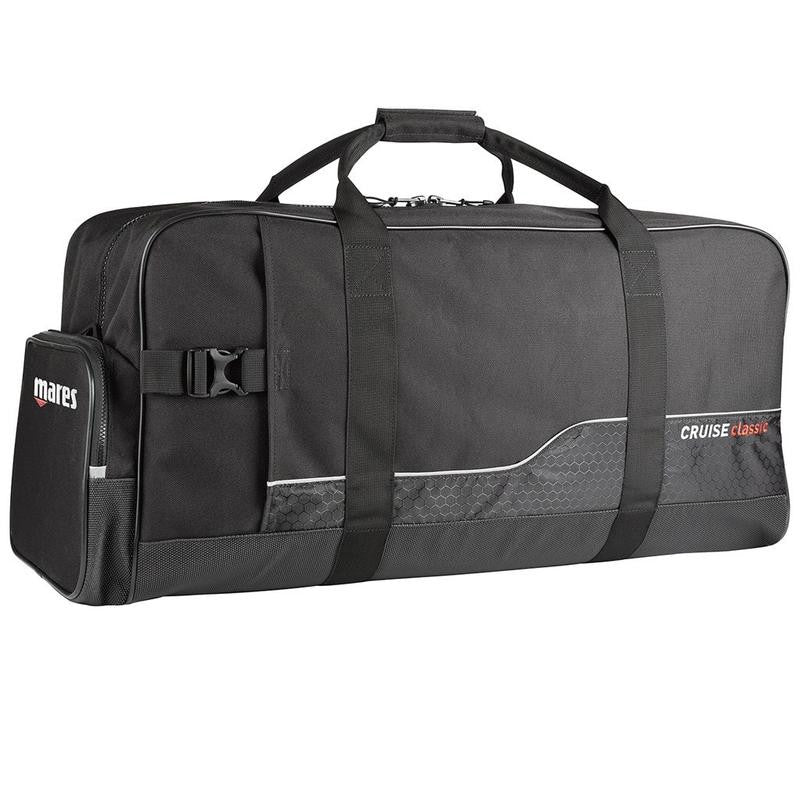
Duffel bags are your basic main dive bag and are usually designed around a simple main compartment with big zip access and two carry handle concept. It works well for fitting in plenty of dive gear at the end of the day and because of it's simplicity it is often a cheaper option and there isn't much to go wrong with it. Climbing the price scale will get you some extra features, more pockets, some wheels maybe and of course there are lightweight and heavy duty variations on the theme.
Pros
- Simple design keeps costs down.
- Wide variety of sizes, colours and material choices.
- No rigid framework or panels allows it to be squeezed into smaller places.
Cons
- Can be heavy and awkward to carry over long distances when fully loaded.
Backpack Bags
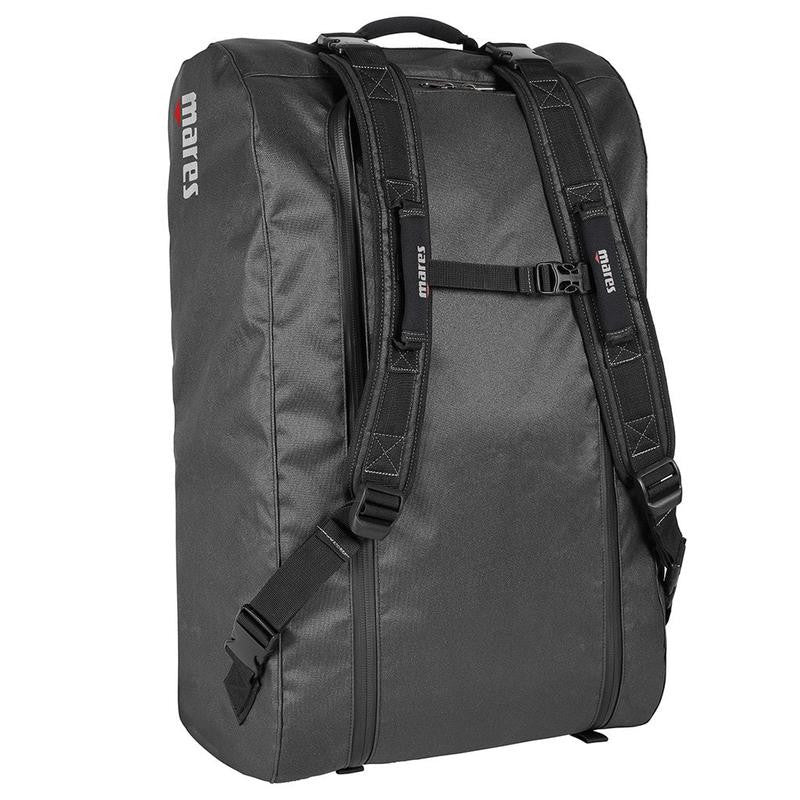
The main advantage of Backpack Dive Bags is that they are great for carrying your kit for a longer distance over a rough surface. The weight is more even spread over the shoulders unlike a duffel bag and dragging a wheeled bag over rough terrain can be challenging and destructive to the bag. More expensive models will sport roller bag type features like wheels and telescopic handles as well as more internal and external pockets.
Pros
- Come is a wide range of sizes and materials
- Typically soft sided making them easy to pack and travel with.
- Keeps your hands free
Cons
- Needs to be sensibly packed as a full set of kit can weigh a lot
- Can be more expensive compared to the same size duffel bag
Roller Bags
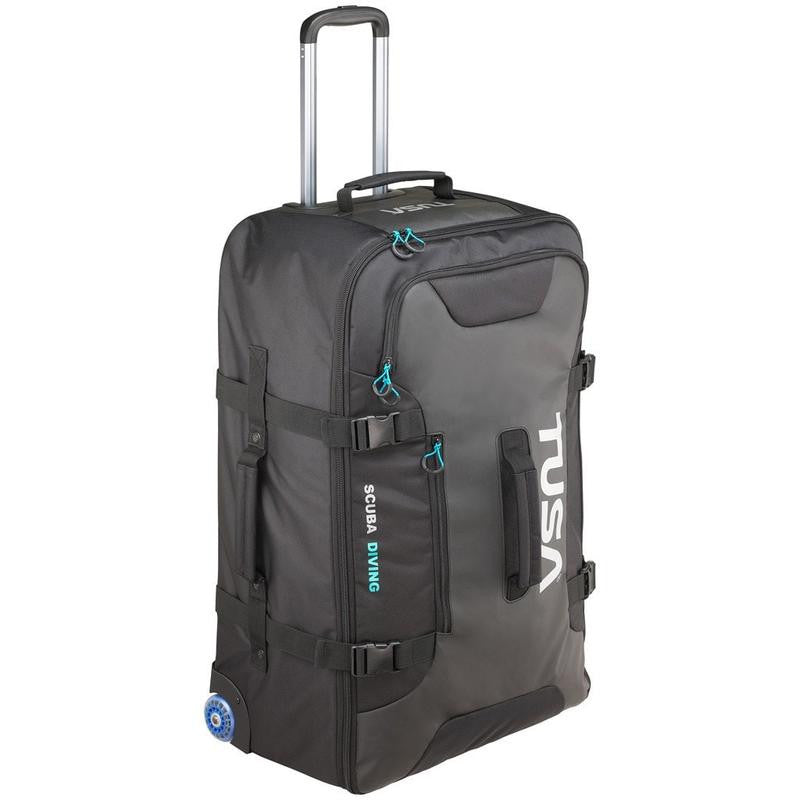
Pros
- Wide choice of sizes and weights
- Easy to move
- Most are designed to stand upright
Cons
- Models with rigid panels can take up a lot of storage space
- Some packing sense required to ensure heavy items are at the bottom when stood up
Mesh Bags
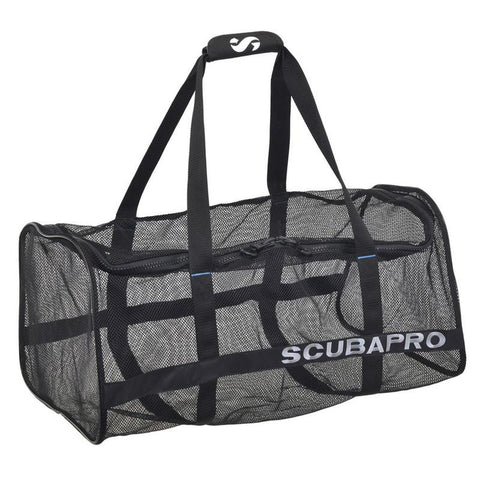
Regulator Bags
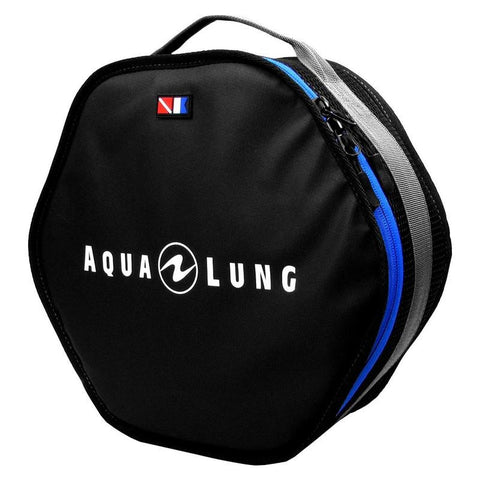
Dry Bags
What To Consider
Material / Weight / Construction
Dive Bags are often biased towards either durability or lightness and will either be built with heavy duty materials, reinforced stitching and big chunky zips designed to withstand years of regular abuse or they will be finished with lightweight materials and alloy framework that allows you to maximise the amount of kit you can fit in a flight weight allowance.
Size
Be realistic about your needs and think about any problems you might encounter like flight size restrictions. A monstrously huge bag may fit all your dive kit in and still have space for the kitchen sink but can you still pick it up?
Strap and Handles
A lot of bags (especially those higher up the price scale) are fitted with multi-purpose or removable straps that allows the bag to be adapted to suit a number of uses or transport requirements.
Think carefully about what you want. Lugging a 20kg duffel bag about is fine if you are just moving it from the back of the car a few steps to where you are kitting up but over a distance it's hard work. A couple of shoulder straps could make all the difference.
Wheels
Wheels are almost a necessity for airports. Trolleys aren't always available and you can often end up walking quite a distance between collection points.
They can be a hindrance as well though, adding weight to a bag and being next to useless over rough ground, loose sand or pebbles meaning you'll have to carry the bag anyway.
Compartments
Do you want plenty of separate pockets for your fins, regulators, documents and accessories or you happy with lumping everything in together. More pockets makes the bag more expensive but it does help to protect your equipment.
Some bags have external fins slots that allow them to act as rigid side panels, giving the bag structure even when empty.
Your Choice
Ultimately it is only you that can weigh up the options and consider what you'll be using the bag for most, whether you want something that is satisfactory for all uses or want several bags that are specialised.
If you are overwhelmed, stuck between a couple of choices or have a question about a particular bag we are always ready to offer our advice so just give us a call, send us a message or pop in and see us.

